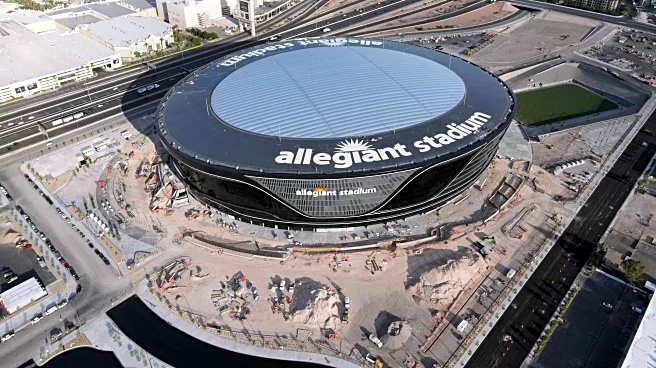Rapid Read • 8 min read
The city of Chicago has approved the first official open-water swim in the Chicago River in nearly a century, marking a significant milestone in the city's efforts to revitalize its urban waterway. The event, scheduled for September, follows 13 years of planning and a previous relocation to Lake Michigan due to safety concerns. Organizers have emphasized safety, deploying over 100 personnel, including 40 lifeguards, and utilizing GPS technology to monitor swimmers. The swim will feature 500 participants, including Olympic and triathlon athletes, and aims to raise funds for ALS research and swim lessons for underserved communities. The event highlights the river's transformation from a polluted waterway to a swimmable and ecologically vibrant environment.
AD
This development underscores the broader environmental and social progress in Chicago. The successful revitalization of the Chicago River reflects significant improvements in water quality and ecological health, benefiting local wildlife and enhancing recreational opportunities. The event also addresses social equity by promoting swim education for Black and Brown youth, groups historically underrepresented in swimming. Economically, the swim could boost local tourism and community engagement, showcasing Chicago's commitment to sustainable urban development. The initiative aligns with global trends of restoring urban rivers for public use, positioning Chicago as a leader in environmental stewardship and public health advocacy.
Organizers will continue to monitor water quality closely, with daily bacteria level tests leading up to the event. The city and event planners are prepared to postpone or cancel the swim if safety standards are not met. The event's success could pave the way for future recreational activities in the river, further integrating it into the city's cultural and economic fabric. Stakeholders, including environmental groups and local businesses, may advocate for continued investment in river health and accessibility, potentially influencing public policy and urban planning strategies.
The event highlights the intersection of environmental restoration and social justice, emphasizing the importance of equitable access to natural resources. It also raises awareness about the historical and ongoing challenges of urban waterway pollution, prompting discussions on sustainable city living. The involvement of high-profile athletes like Olympian Natalie Hinds brings attention to the critical issue of water safety and drowning prevention, particularly in marginalized communities. This initiative could inspire similar projects in other cities, contributing to a broader movement towards reclaiming urban rivers for public benefit.
AD
More Stories You Might Enjoy











